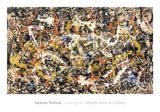Considering beauty from a mathematical and/or an artistic perspective....From a wikipedia article on Mathematical beauty:
Most mathematicians derive aesthetic pleasure from their work, and from mathematics in general. They express this pleasure by describing mathematics (or, at least, some aspect of mathematics) as beautiful. Sometimes mathematicians describe mathematics as an art form or, at a minimum, as a creative activity. Comparisons are often made with music and poetry.
Bertrand Russell expressed his sense of mathematical beauty in these words:
Mathematics, rightly viewed, possesses not only truth, but supreme beauty — a beauty cold and austere, like that of sculpture, without appeal to any part of our weaker nature, without the gorgeous trappings of painting or music, yet sublimely pure, and capable of a stern perfection such as only the greatest art can show. The true spirit of delight, the exaltation, the sense of being more than Man, which is the touchstone of the highest excellence, is to be found in mathematics as surely as poetry. (The Study of Mathematics, in Mysticism and Logic, and Other Essays, ch. 4, London: Longmans, Green, 1918.)
Paul Erdős expressed his views on the ineffability of mathematics when he said "Why are numbers beautiful? It's like asking why is Beethoven's Ninth Symphony beautiful. If you don't see why, someone can't tell you. I know numbers are beautiful. If they aren't beautiful, nothing is."
I can see where people see mathematics as beautiful - truth, simplicity, perfection. I take issue with the notion that art is an appeal to "part of our weaker nature" - or that to express that which cannot be easily put into an equation (or words) is somehow "less than". I think it is a failure or our society to not value that which has not been quantified - and esp. to denigrate positive emotions and attempts to describe Nature in various ways - as if the emotions and the expression of them are a form of "weakness".
 I found this article, Fractal Expressionism, a mathematical analysis of Jackson Pollock's paintings, linked from the wikipedia page on Mathematics and Art.
I found this article, Fractal Expressionism, a mathematical analysis of Jackson Pollock's paintings, linked from the wikipedia page on Mathematics and Art.I think it's funny that for some people - Pollock's paintings have value because they are able to quantify them - there is some formula that they fit into. As if people are unable to see something and know truth and beauty when they see it - to know whether something "speaks" to them or not. But maybe it's just a matter of knowing the language. They learned the language of mathematics - so they see things with that language. I learned the language of art - so I see things with that language. (Though I think that for me - the language that I recognize in art is esp. that language in which people are inspired by Nature).
Based on the analysis of Pollock's paintings - apparently he was able to "speak" in multiple languages - a language that can be understood by math and science, as well as art.
Example: Finally we note that, because D follows such a distinct evolution with time, the fractal analysis could be employed as a quantitative, objective technique to both validate and date Pollock's drip paintings. In conclusion, Pollock's contribution to the evolution of art is secure. He described Nature directly. Rather than mimicking Nature, he adopted its language - fractals - to build his own patterns.
I think this is similar to what I have been trying to do. And to use the language of Nature - you can't copy someone else - you have to find it for yourself. But that people are inspired by/learn from others. That's how I see it anyway.
__________________________________________________
As I was writing this - someone else in the house was playing a recording of Huun-Huur-Tu (Tuvan throat-singing). That could also be a "language of the universe" - that the Tuvans tapped into - and express in their own way. The description of their music is "This world-famous ensemble from Tuva uses the vocal technique to create high and low notes at the same time, imitating the natural world of the Central Asian steppes."
I think it's just a matter of recognizing it - the "Language of the Universe" (and people's various expressions of it) when you see or hear it. Some people do - some people don't. Some people recognize it when they hear/see/read it one way - some people do another way. Some people may be disconnected and are not trying to hear/see/read about it in any form. Or maybe some people just have a completely different idea of the essence of the universe and truth. That could be what.
No comments:
Post a Comment